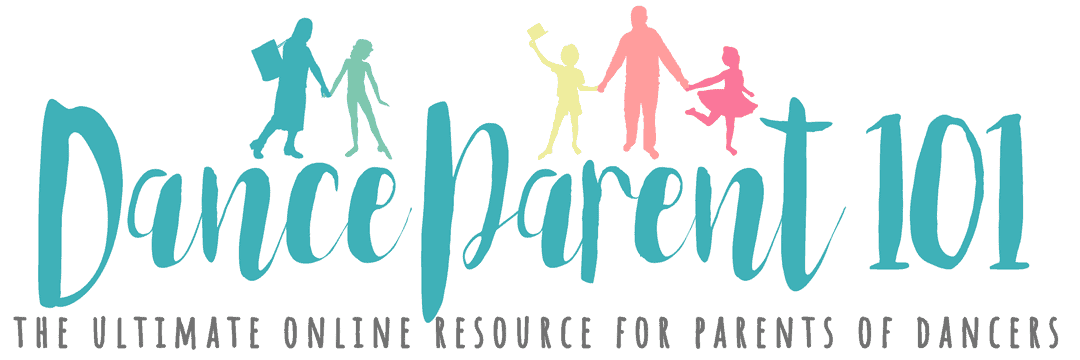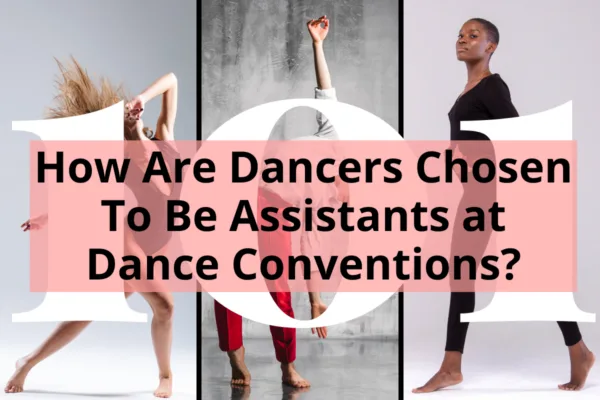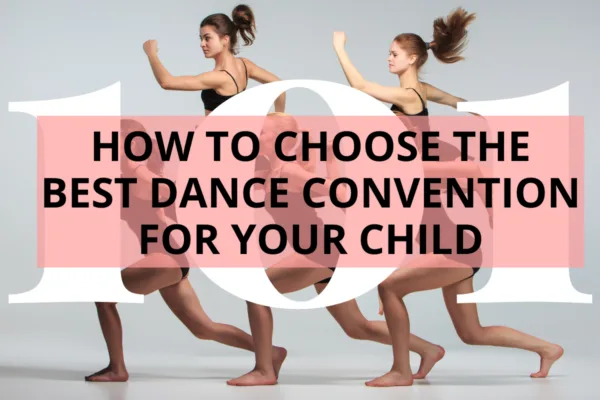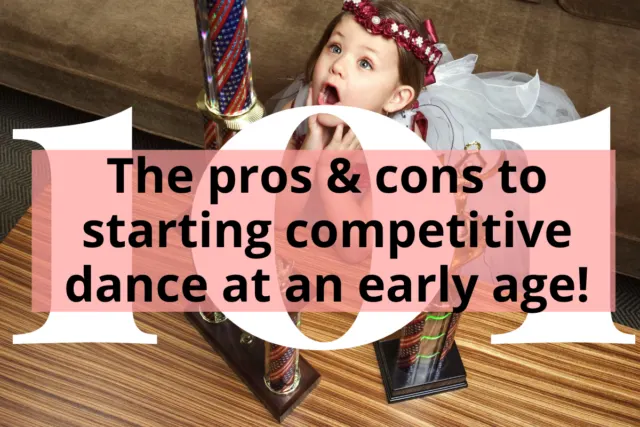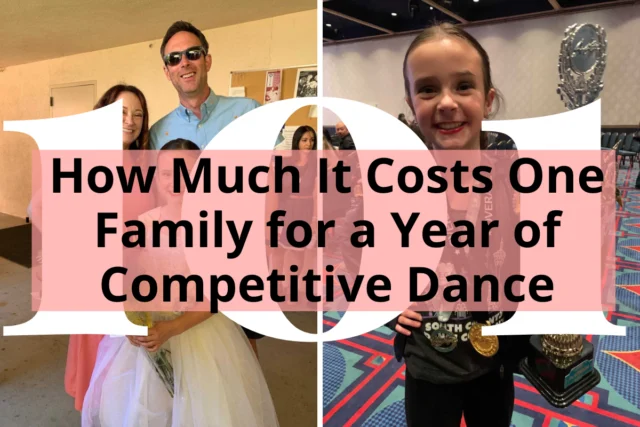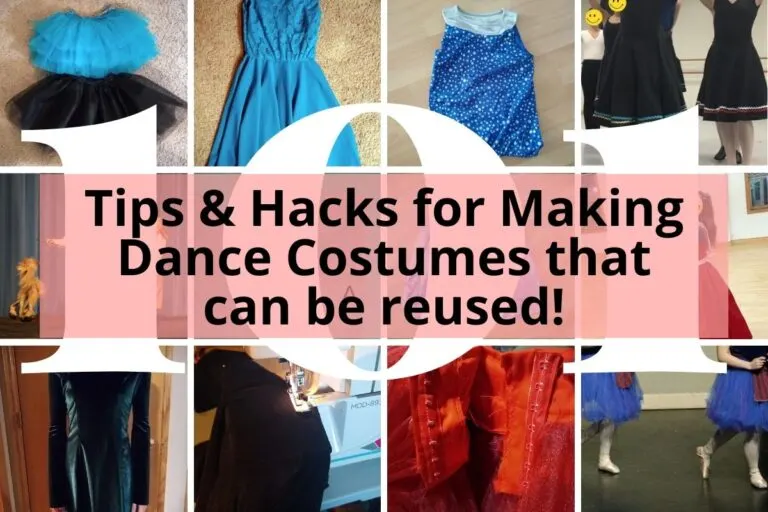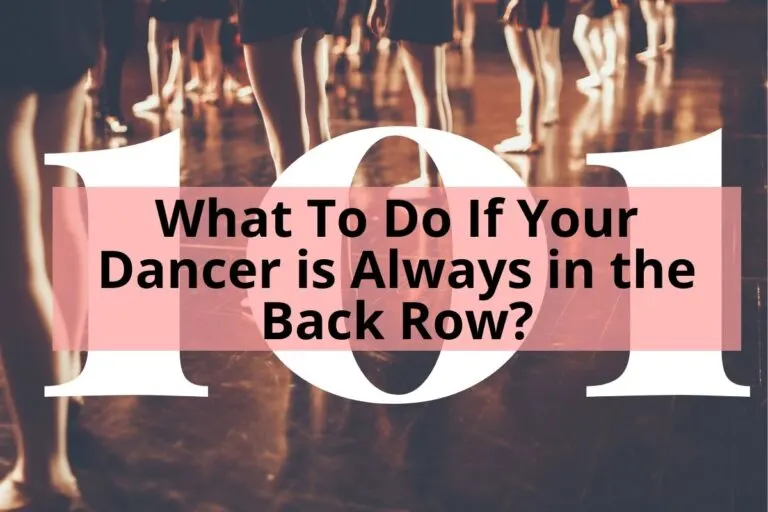Competitive dancers typically are very driven and have a keen ability to memorize choreography. Being competitive can be very stressful and overwhelming at times but there are so many amazing things dancers can learn when on a competitive competition team such as:

1. Building amazing friendships and learning how to work as a team
Competitive dancers will be part of a team or group that performs together, usually over several years. They spend an immense amount of time with their team and bonds and friendships are established that can last for years.
However not everyone always gets along, competitive dance is competitive by nature and therefore dancers have to learn to put aside their differences and work as a team to meet their goal of doing their best together.
2. Learning valuable life lessons such as dealing with disappointment
It is rare that a competitive dancer wins or even places ALL THE TIME! Therefore competitive dancers learn to deal with the fact that you can work really hard at something, but not win.
This means that they learn at an early age that it is not always about the result, but the journey to get there. Winning a trophy or medal is nice, but knowing that you have improved, progressed, and are better than you were yesterday can be more important!
3. Staying physically active and establishing healthy habits
Competitive dancers train several days a week keeping them more physically active than many of their school peers!
Being so active also means they need to fuel themselves in healthy ways to ensure they have the energy to keep up the physical activity. When supported by teachers and parents, healthy eating habits can be established. I personally love the advice given by Rachel Fine (a former dancer and Registered Dietitian Nutritionist) at To The Pointe Nutrition (affiliate link) who has online courses you and your dancer can do about establishing healthy eating habits for dancers.
4. Developing discipline and a good work ethic
One thing I know I learned as a competitive dancer myself was how to be disciplined and practice whether I was motivated to or not!
I turned up to class whether I was tired, upset, feeling unmotivated, or just couldn’t be bothered because I knew that I had an obligation not only to myself to achieve my goals but also to my team.
Over time this also grows into producing a solid work ethic, which is a coveted trait that many employers in real life are looking for in their employees!
5. Opportunities to showcase achievements and skills
Recreational dancers generally get to perform once or twice a year at the mid-season and annual recital. Competitive dancers get to perform multiple times a year, often multiple times a month.
This means they are not only being given the opportunity to showcase their progress, achievements, and skills on a regular basis but they are developing a baseline of experience for dancing on stage.
It is normal to be nervous before going on stage, and trust me lots of performance experience does not necessarily make those feelings go away, however, when you are on stage a lot you learn how to control your nervous energy and channel it into useful energy whilst performing.
You also experience the ups and downs of performing live on stage – perhaps a prop doesn’t work as it should, or someone forgets the steps, or part of your costume falls off… Dancers who have multiple opportunities to perform learn how to cover all these mistakes over time, so if they do go down a professional path, they are pros and nothing phases them!
6. Embracing creativity and self-expression
There is no feeling quite like performing on stage! Ask most seasoned dancers and they will tell you that once on stage, the audience melts away and they are able to freely express themselves.
In the beginning, a competitive dancer will be in their head quite a bit, as they ensure they are in the right position, using all their teacher’s corrections, ensuring they pointe their toes and smile… however there is a point when the mind switches off and you can see the pure joy and expression of the dancer. This is one reason the lyrical style of dance has exploded over the last twenty years or so!
Dancers are athletes, but dance is an art form and not exactly a sport. I like to think of it as SPART, but I don’t think that is going to catch on. Competitive dancers get to dance in different styles, to different choreography, and are immersed in a very creative albeit active art form.
7. Becoming involved with the community and volunteerism
One thing many dance studios do is give back to their communities in the form of dance. And because competitive dancers generally always have routines ready and polished for public viewing, it is the teams that are called on to help out!
I can remember going to many a nursing home and performing an afternoon show for the residents or participating in the town parade or dancing at an event to help support a local charity.
Students are often also given the opportunity to volunteer within their own dance schools as student helpers for younger classes. This experience can be invaluable allowing young dancers to decide if perhaps they too would like to become a dance teacher one day, rather than going into it and realizing they actually don’t like teaching for example.
8. Learn the value of money and how to fundraise.
Competitive dance is not cheap! It is a financial investment for many families and can determine how many dances and competitions a competitive dancer can ultimately enter, which can be a great lesson in itself for a young person today. Check out our articles:
How Much It Costs One Family for a Year of Competitive Dance
How to Budget for Competition Dance a Year in Advance
The Real Costs Of Competitive Dance – A Parent’s Run Down
But because it is expensive, many dancers and their families budget specifically for dance and do fundraising. These are great financial skills competitive dancers can learn at a young age, that can transfer into their future lives whether they dance or not. For fundraising ideas check out:
Easy Fundraising Ideas for This Dance Season
6 Helpful Ideas for Supporting Your Dance Studio’s Fundraisers
9. Professional opportunities such as modeling, commercials, or dance companies
Although it is rare and should never be the reason why a dancer enters into competitive dance, there can be an opportunity for dancers to attract professional opportunities through attending competitions and the dance conventions associated with them.
Whether that be as an influencer for a dancewear brand, the face of the competition for the next year, commercials, or a place with a dance company or in a college program.
This is tricky territory and I would advise any parent to proceed with caution if your dancer is approached for professional work through a competition or convention. Many offers are legitimate but they should stand up to all checks you might do on the validity of the work and you should always insist that you attend EVERYTHING with your dancer if they are underage.
You don’t have to be ‘a dance mom’ and give your input, that’s not your job instead be quiet and discreet with your presence! All I know is Celine Dion’s mom attended nearly everything with her daughter before she was 18 and it never hurt her career!
10. Competitive dance can be fun-filled with traveling and performance
It is rare that all the competitions a dancer will attend are close to home. Many dance competition events travel from state to state, but even then they may be located several hours from your dance studio.
This means that you get to travel to different places throughout the year both regionally and nationally.
Some families depending on the location will take a short vacation to the competition venue, especially if it is for a national competition.
In a few weeks after publishing this post, I will be staying overnight with my two girls in a town only just an hour away from where we live as we are onstage as the opening section for the day at 8.30 am in the morning. It is not far and certainly drivable on the day but it is a perfect opportunity to have a girl’s weekend and perfectly segways into the bonus point on this list…
11. Bonding and memory making between parents and dance kids
With all the travel involved in competitive dance as well as the rehearsal schedules and more, the hobby can be a great way for parents to spend quality time with their dance kids.
Whether it is creating a ritual for putting stage makeup on, or having a special dinner the night before a competition there are so many opportunities parents can use to bond with their dance kids.
